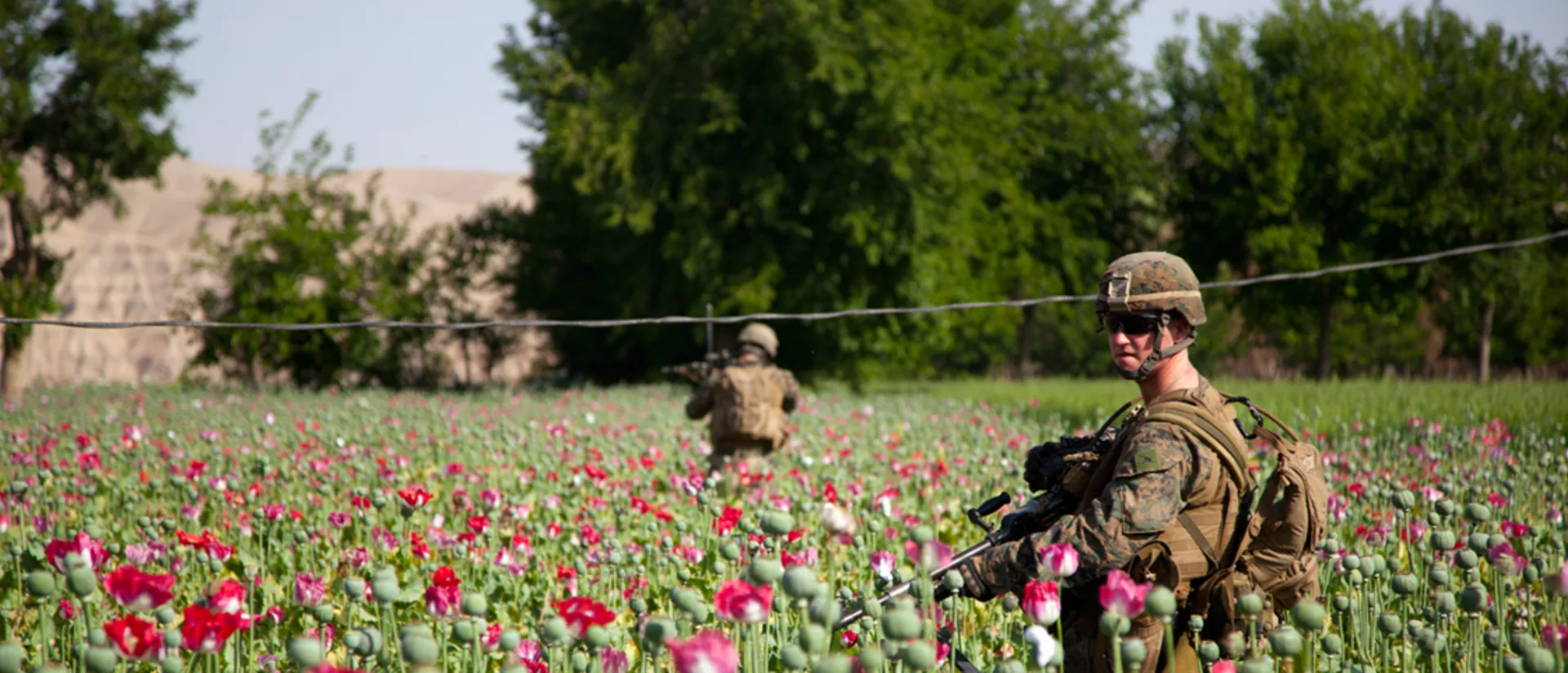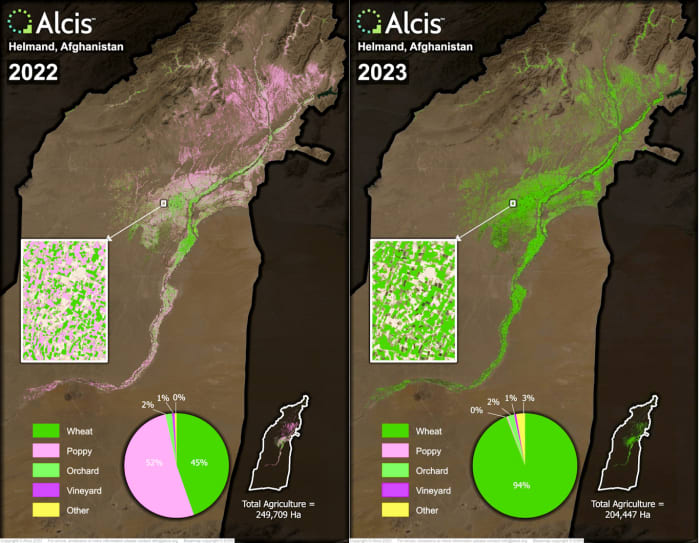by Matt Agorist, The Free Thought Project:

The Taliban government in Afghanistan – the nation that until recently produced 90% of the world’s heroin – has drastically reduced opium cultivation across the country. Western sources estimate an up to 99% reduction in some provinces. This raises serious questions about the seriousness of U.S. drug eradication efforts in the country over the past 20 years. And, as global heroin supplies dry up, experts tell MintPress News that they fear this could spark the growing use of fentanyl – a drug dozens of times stronger than heroin that already kills more than 100,000 Americans yearly.
TRUTH LIVES on at https://sgtreport.tv/
THE TALIBAN DOES WHAT THE US DID NOT
It has already been called “the most successful counter-narcotics effort in human history.” Armed with little more than sticks, teams of counter-narcotics brigades travel the country, cutting down Afghanistan’s poppy fields.
In April of last year, the ruling Taliban government announced the prohibition of poppy farming, citing both their strong religious beliefs and the extremely harmful social costs that heroin and other opioids – derived from the sap of the poppy plant – have wrought across Afghanistan.
It has not been all bluster. New research from geospatial data company Alcis suggests that poppy production has already plummeted by around 80% since last year. Indeed, satellite imagery shows that in Helmand Province, the area that produces more than half of the crop, poppy production has dropped by a staggering 99%. Just 12 months ago, poppy fields were dominant. But Alcis estimates that there are now less than 1,000 hectares of poppy growing in Helmand.
Instead, farmers are planting wheat, helping stave off the worst of a famine that U.S. sanctions helped create. Afghanistan is still in a perilous state, however, with the United Nations warning that six million people are close to starvation.

Data from Alcis shows that a majority of Afghan farmers switched from growing poppy to wheat in a single year
The Taliban waited until 2022 to impose the long-awaited ban in order not to interfere with the growing season. Doing so would have provoked unrest among the rural population by eradicating a crop that farmers had spent months growing. Between 2020 and late 2022, the price of opium in local markets rose by as much as 700%. Yet given the Taliban’s insistence – and their efficiency at eradication – few have been tempted to plant poppies.
The poppy ban has been matched by a similar campaign against the methamphetamine industry, with the government targeting the ephedra crop and shutting down ephedrine labs across the country.
A LOOMING CATASTROPHE
Afghanistan produces almost 90% of the world’s heroin. Therefore, the eradication of the opium crop will have profound worldwide consequences on drug use. Experts MintPress spoke to warned that a dearth of heroin would likely produce a huge spike in the use of synthetic opioids such as fentanyl, a drug the Center for Disease Control estimates is 50 times stronger and is responsible for taking the lives of more than 100,000 Americans each year.
Read More @ TheFreeThoughtProject.com




